End of World Diary N°3: China Just Won
These days 99% of everything seems to be about Covid-19; when it isn’t, it’s even worse: staying of home has revealed our weaknesses, and our expression in the social media is now a mix of poor taste and anguish. Dumbness would make a better–albeit less noble–descriptive.

The stress is huge (please replace your coffee with herbal tea or, where available, with pot), and the situation is only getting worse. While China seems to have gotten over it, the so-called West is sinking as in quicksand. Most governments have so far established self-quarantining or curfew measures for limited periods of time, but it’s going to take months. And this is because of everyone.
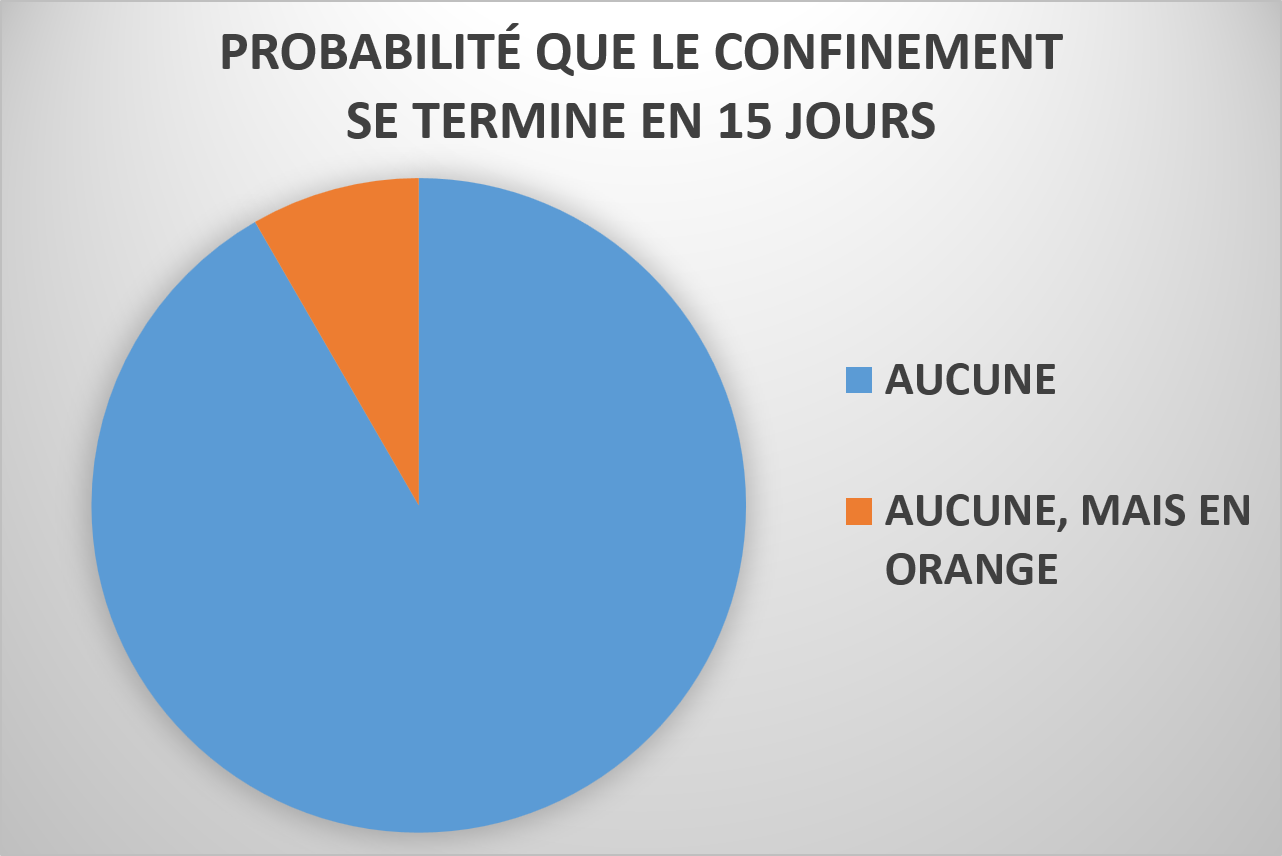
It’s unproductive to point to the general irresponsibility of both the public and of governments, which were taking turns: when the public asked for all non-essential activities to be halted, governments were concerned about the resulting economic downturn; and when governments told people to stay at home…
Here’s how it should have been done: in Jordan, when they saw the ordinary measures are not observed, they declared a 24/24 total curfew, enforced with the army and punished with immediate imprisonment!
No matter how much are the Chinese lying, the one thing they–eventually–did right is the extensive set of lockdown measures. What’s done in Europe is far from being satisfactory. This French doctor living in Wuhan couldn’t see his wife and kids for 60 days–in extraordinary times, extraordinary sacrifices are required:
And here’s–this time with English subtitles–how the Chinese city of Nanjing fought the Covid-19, and what measures are still in place even now, when the number of infections is zero:
Surprisingly enough, once the Chinese authorities decided the lockdown, and then hardened it, the Chinese population complied almost instantly, and not just fearing the CCP and the police. Most Chinese simply trust their government–even if not completely–so they just accepted that the situation is a dire one.
In contrast, an entire Europe was utterly irresponsible. On Feb. 21, il focolaio di Lodi was quarantined, but the rest of the Italy wasn’t particularly worried. Milano Fashion Week (Feb. 18-24) wasn’t closed down, despite some of the foreign participants having canceled their attendance. And here’s maybe the most famous French vlogger, Norman Thavaud, packing for a long holiday he really, really needed to make; after Milano (and the fashion show!), he really, really needed to go to Qatar and Oman!
Ce pauvre débile n’est pas à blâmer. This is the world we’re living in, and this pandemic is the price to pay for our collective idiocy.
When I browsed the n+1 Magazine the other day, their long article about the “Chinese virus” didn’t impress me through the various references to capitalism, but with simple ideas like this one:
Whereas the SARS outbreak was blamed on the peculiar, outlandish diets of the Cantonese people and then traveled through the elite cosmopolitan links between major Asian cities, the so-called “Wuhan virus” points to the utterly mundane way that countless nodal points around the world, including “second-tier” Chinese cities, are interwoven more tightly than ever across global circuits of commerce, education, and tourism.
By comparison, during the “high socialist” era of the 1950s through the ’70s, the rapid spread of a Covid-19-like virus from a fishmonger in Wuhan to hundreds of countries in a matter of weeks would have been unimaginable.
Indeed, people are traveling too much these days. Way too much.
Digging on the same site, here’s on March 13: Stop Making Points tells us how an idiot went on train from Paris to Milan to Rome; his father was still living in Italy, and he needed a serious surgery in Rome. On March 17, another idiot just needed to return from Vienna to Rome. Everyone seems in Brownian motion across the continent, when it’s not across the globe.
Just try to figure how life was 50 years ago. “My parents … their life is a fantasy. Their generation’s life is our porn,” said the guy whose father went through surgery. Their generation’s life was like this:
- Less than 50% of the population were spending their (summer) holiday outside their hometown, and I’m talking of Western Europe!
- Of these, most people were spending their holiday in the country of residence or, should one be living near a border, in the neighboring country.
- “City breaks” was not a thing back then, but some people who couldn’t get a “real holiday” might have spent one weekend per year in another country. Maybe two, tops.
- Business-wise, the companies weren’t that globalized and, despite videoconferencing being nonexistent (no Internet, no life!), long-distance travel was kept to the minimum dictated by the real business needs and also by the common sense that’s now missing.
In 48 years, the number of flights increased 13.65 times:
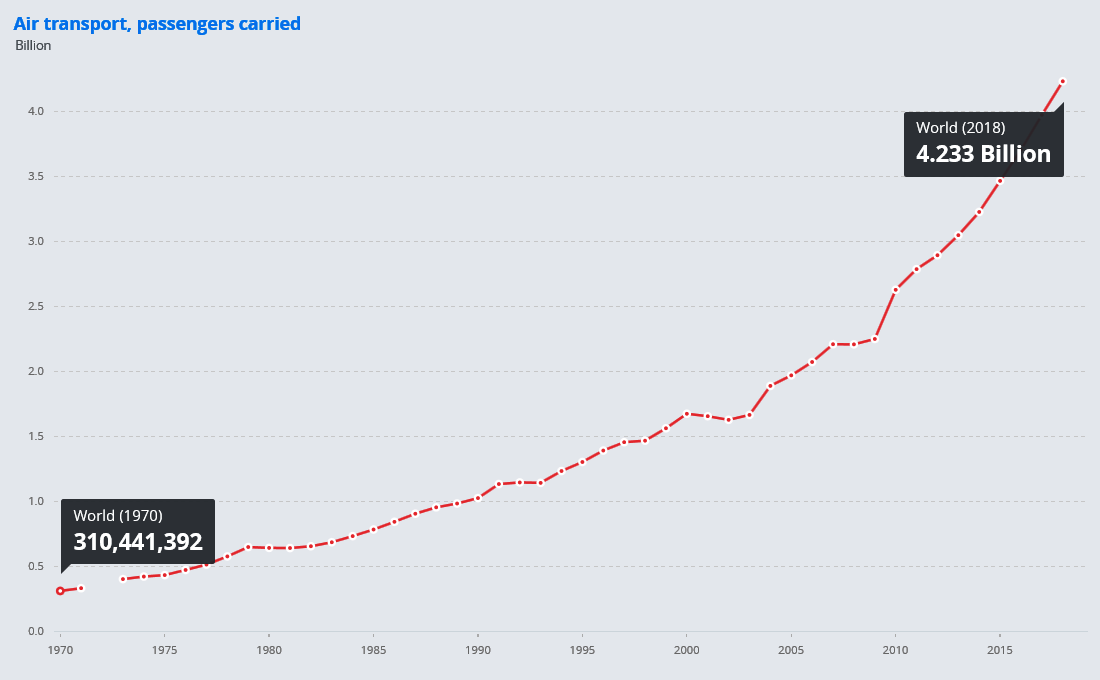
Now you know why this pandemic happened. This, and the “local globalization”: long commuting is a pest today, and not only in the West. Long commuting was one of the many things that were missing in China «during the “high socialist” era», but now it’s commonplace everywhere. People just don’t work anymore in a radius, say, of 20 km of their homes. These two factors allowed the virus to spread quickly from Wuhan to the entire province of Hubei and to the world.
Of course, not everyone agrees. The French philosopher Bernard-Henri Lévy is one such guy.
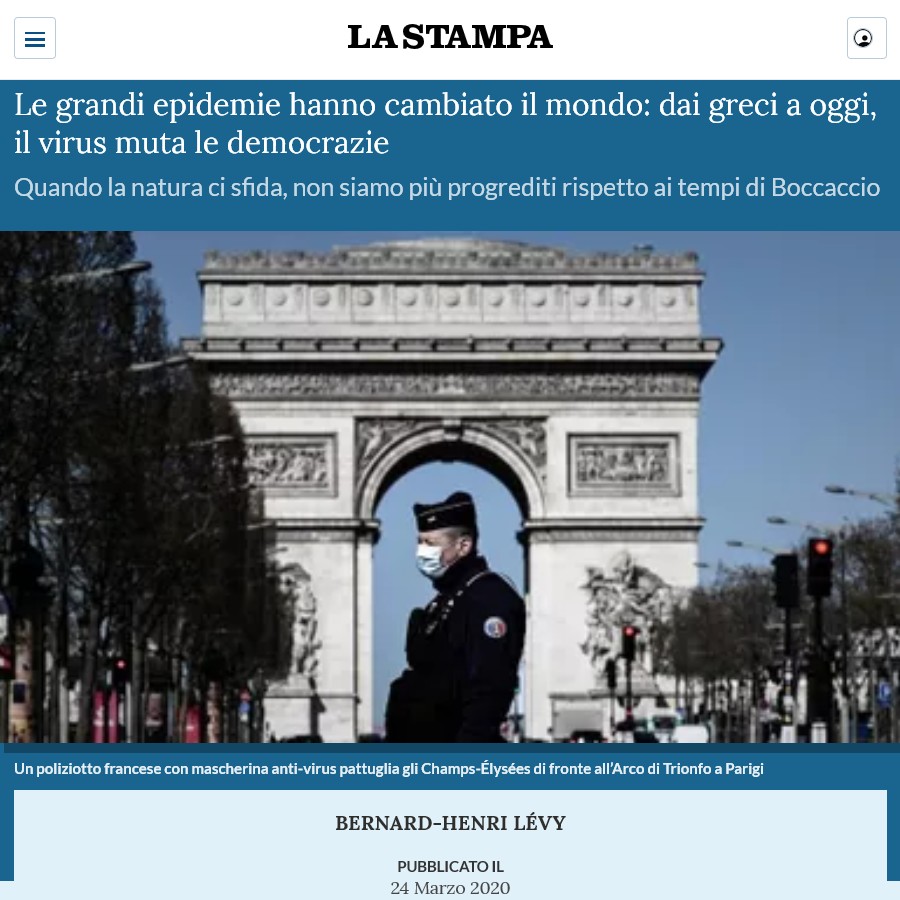
I couldn’t find the original article in French, but only this Italian translation in today’s La Stampa. So my translation in English will deviate even more from the original.
What’s BHL’s take on how epidemics have changed the world, from the Ancient Greece to our days? First and foremost…
We must abandon the idea of a cause and effect relationship between globalization and the epidemic.
We can see how this idea reinforces the xenophobic reflexes: today it is the “Chinese virus”; tomorrow the distrust towards “foreigners” and “migrants” about whom one should ask oneself which “home” they will go to.
Let’s also see how it ends up feeding the global Lent climate that has become the trend of the moment: “Too much enjoyment; too much prosperity; the globalized planet was in a state of overheating that only a good old-fashioned epidemic could cool down.”
But the point is that this idea is false.
There was no globalization when the Black Death, which started in Genoa and Marseille, wiped out a third of Europe’s population. There was no globalization during the diphtheria of the 16th and 17th centuries.
Least of all when the first documented epidemic began: we are in 412 B.C., in Perinth, in Thrace; it is the moment when the Greek language invented, if not the thing, at least the word (epidemos, literally “on the people,” the first calamity which, contrary to the biblical idea of a “plague” affecting the “firstborn,” falls on the whole people, without distinction of age, rank or excellence); Hippocrates, who is there, says that the evil begins with a dry cough, followed by hot flashes and then suffocation; and this epidemic, he says, almost completely destroys the city.
Do I agree with BHL? No way. Epidemics (and pandemics!) existed and will always be a thing; the difference is that this one is spreading way too fast.
BHL is a philosopher who loves to dramatize:
The second thing is that nothing has really changed, two thousand five hundred years later, in the way a society tries to protect itself against a new virus.
Hippocrates, in fact, in his report on the episode of the “Périnto’s cough,” lists a series of “gestures of protection” that even resemble those of today’s epidemiologists.
Boccaccio in Décamerone, explains that the only way to deal with the “deadly plague” is to “close oneself up” and “entrenched oneself”; to stop “visiting each other with relatives”; to make sure that “citizens avoid each other” […].
And as for the Great Plague epidemics, they have produced this “great containment” analyzed by Michel Foucault and which, in English, translates as by chance into “great confinement.”
Bullshit. All this only to defend globalization! But BHL also loves to contradict himself, as he also adds that the idea that the world after Covid-19 could continue “as before” is an illusion; after an unnecessary reference to the books of Georges Canguilhem, he merely states that
the shock of major epidemics was no small factor in the decline of the Greek democratic miracle.
and that
The Spanish Flu left a legacy to the world that survived it […]
without being able to tell much about today:
Still too soon to tell. But it’s a gamble already won that tomorrow’s world won’t be, for better or worse, the same as yesterday.
For better or for worse: a China that will have a chance to lecture us on health crisis management.
For worse: the temptation to fall back, to close in a fortress and say goodbye to the world, to the other, to the afflicted and the damned.
For better: the citizens of Milan and Paris at the windows of the buildings to greet these white knights of the Republic that are our health workers.
What, of this or that, of the humiliation of the democracies or their nobility will prevail? It will be for each of us, in pain and faith, to decide.
Before reaching that phase–and while recognizing the heroism of the health care professionals who are in a war without respite with the Covid-19–let’s hope bureaucracy doesn’t kill us.
Here’s an Italian doctor who devised a way to use a single medical ventilator to help two patients:
I’m pretty sure this won’t be implemented on a large scale. I know the world I’m living in!
Then, let’s talk of the chloroquine and hydroxycholoroquine, the anti-malaria drugs that showed promising results in roughly 75% of the coronavirus-infected people they have been tested on.
Well, here’s a criminal French doctor saying that chloroquine should only be used as a last resort, and only after a panel of specialists have decided it’s worth trying:
Of course, this idiot is backed by the criminals from the WHO, who also condemn this off-label use of an anti-malaria drug. Make sure you don’t forget how a mass-murderer looks like:

For goodness’ sake, it’s not a poison! Here’s the CDC leaflet on Medicines for the Prevention of Malaria While Traveling: Chloroquine (Aralen™). It’s a safe drug that has been taken so far by a billion people, as explained by Didier Raoult, from the IHU Méditerranée Infection de Marseille:
Ce qu’on dit sur les effets secondaires est tout simplement délirant. Ce sont des gens qui n’ont pas ouvert un livre de médecine depuis des années. Plus d’un milliard de gens en ont bouffé, les personnes qui souffrent de lupus en prennent pendant des décennies… Je connais très bien ces médicaments, j’ai traité 4 000 personnes au Plaquénil depuis 20 ans. Ce n’est pas moi qui suis bizarre, ce sont les gens qui sont ignorants. On ne va pas m’apprendre la toxicité de ce médicament.
Yes, this guy has been constantly downplaying the severity of the Covid-19, which is unacceptable, but he’s a great specialist, and he tested the chloroquine! He’s got some support…
What we need now is a political decision. The “specialists” are quarrelling like the dumbest idiots whether a drug is effective or not, and meanwhile people are having their lungs destroyed and they’re dying because some stupid “validation” is missing for this use of an old drug!
Well, Trump said “it’s not going to kill anybody.” And some idiot took too much of it and poisoned itself. This is not a reason not to prescribe it: everybody can poison themselves with no matter what–paracetamol, for one–if taken in sufficient quantities. But chloroquine has been proven to be effective in the treatment of diseases associated with increased secretion of proinflammatory cytokines such as malaria or rheumatoid arthritis, and the severe inflammation of the lungs experienced by some Covid-19 patients is due to an explosion (an excess) of cytokines (more precisely, interleukins). It’s criminal not to try to counteract this process.
In France, some doctors have stocked up on chloroquine, and they’re using it on themselves (if it can prevent malaria, it can also prevent the nasty form of Covid-19 via the inhibition of cytokines):
Je suis dégoûtée. J’ai une partie de ma famille qui vote LREM ou au mieux LR. Des gens que je vois peu. Plusieurs sont médecins. Eh bien ! Tenez-vous bien ! Ils se sont tous procuré le traitement de Raoult, dès le mois de février ! Ils l’ont, chez eux, auto-prescrit.
— Wilhelm marie @MarieWilhelm@mamot.fr Creuse (@labatmarie1) March 25, 2020
To prove that this is not a dangerous drug, take that: Plaquenil (hydroxychloroquine) was prescription-free in France prior to January 15, 2020!

Comic strip intermezzo: the character Coronavirus (which was wearing a mask) in the 2007 album Astérix et la Transitalique (EN: Asterix and the Chariot Race; DE: Asterix in Italien; IT: Asterix e la corsa d’Italia):
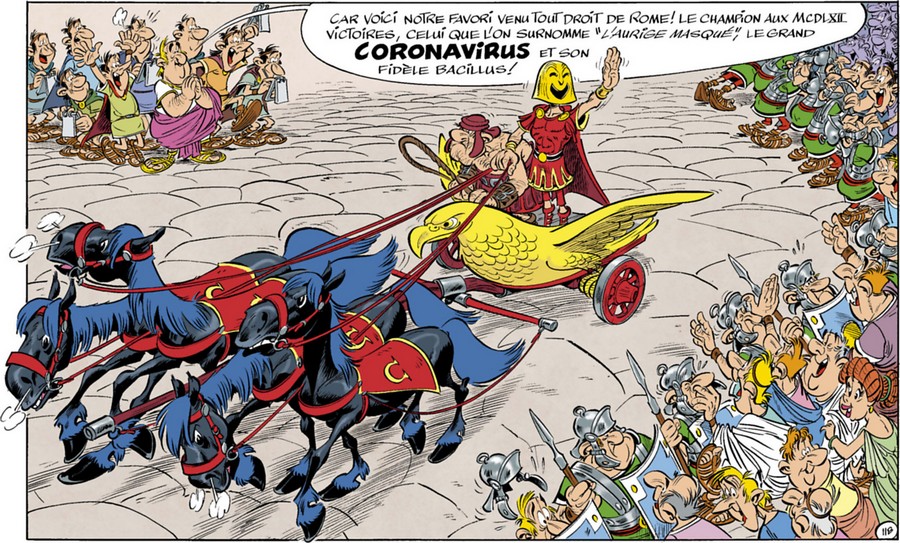







Let’s now go beyond all this and move forward. What is China doing now–and why? You certainly have noticed some contradictory moves from their part.
First things first, they have a peculiar understanding of the concept of “damage control.”
On the one side, they are desperate to help us go through this quicker. China has restarted the factories, while Europe has just halted some of them. The Chinese will be at full capacity when we’ll be dropping like flies. They still hope for a 3% GDP increase, but the domestic consumption isn’t enough to absorb the industrial output: they badly need to be able to continue their exports to Europe and the US, yet currently everything we need from them is face masks and medical ventilators! (Surprisingly for some, they also need to import stuff from us: China’s net exports–that is, exports minus imports–only make 1.7% of their GDP.)
So yeah, it’s understandable that they’re coming to Lombardy and to other parts of Europe to tell us we’re not doing enough to contain the Covid-19. As shown in the previous post, they even wrote handbooks in English about this coronavirus. The fact they’re sending us millions of face masks is not just propaganda–they really need us out of this crap! (They also fear a second wave in China–an imported wave of Covid-19!)
But then… they’re screwing it completely. After having launched in their national social networks–mostly WeChat and Weibo–and encouraged the spread of the conspiracy theory that Covid-19 (SARS-CoV-2) is actually… “Made in USA,” they unexpectedly launched the same disinformation campaign in the West.
The Chinese Embassy in France first relayed a YouTube conspiracy video:
Then, they started a 4-tweet thread of accusations masked as questions:
At the apex of their theory, the surprise closure last July of the largest US biochemical weapons research center at Fort Detrick, Maryland. After the closure, a series of pneumonia cases appeared (did they?) in the United States, allegedly leading to 20,000 deaths (which is an unlikely figure). China claims that this pneumonia wasn’t started by a flu (or by vaping in some cases), but by SARS-CoV-2.
Fantastic theory, but you’ll see it’s better packaged than that. The irony makes that a number of Western expats living in China, making business in China and vigorously defending China are doing this pro-China propaganda on social networks that are blocked in China, namely on YouTube in this case! Watch the extremely elaborated “documentary” posted by Nathan Rich and relayed by the Chinese Embassy:
Watch it. Watch it to understand the Westerners that not only love China, but also make for the most effective propaganda China ever had in the West!
There are, of course, many other ways China is trolling the West. In Dalla Cina al Regno Unito, il virus della disinformation usa l’Italia come tavolo operatorio, after two propagandistic “semi-fake” news, an outrageous lie is mentioned: extrapolating a phrase of Prof. Giuseppe Remuzzi, director of the Mario Negri Institute for Pharmacological Research, China has spread in the Chinese social networks the claim that the very first case of Covid-19 was in Italy, not in China!
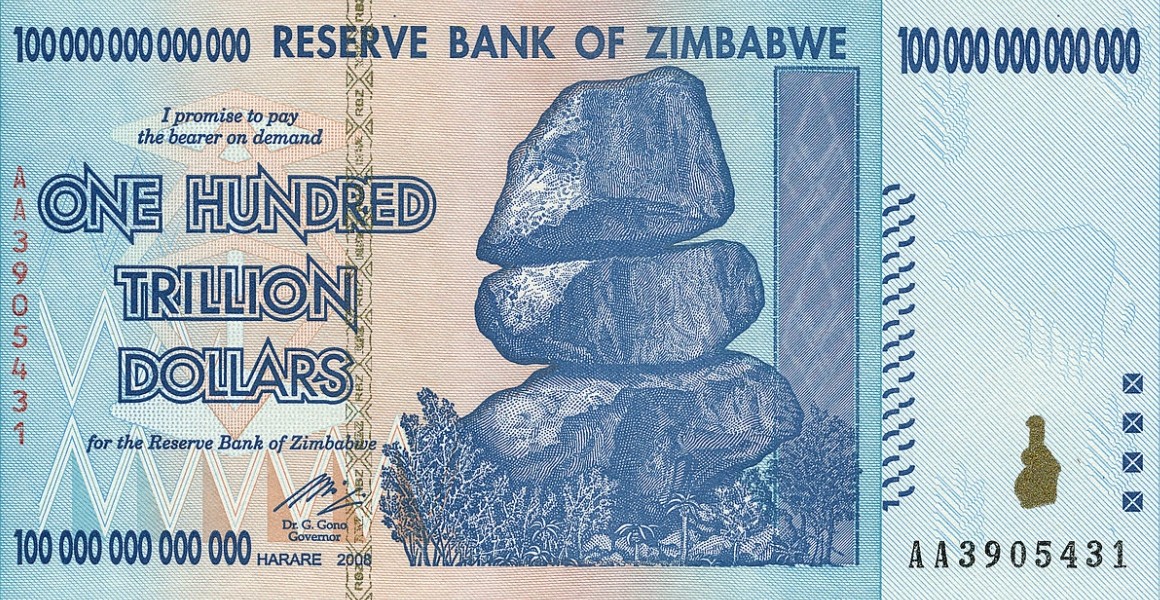
Whatever is going to happen is going to happen. This crisis will cost Germany between 255 and 729 billion euros, depending on how much the GDP will contract (anywhere between 7.2% and 20.6%). The United States is not looking good: “Many businesses are already insolvent, have already shut down, have already lost their employees.” I don’t even want to speculate on the degree of darkness of the future.
The question is: after all the havoc, will it ever happen a change for the better? (I started by being skeptical; read from section 11 downwards.)
From a human rights perspective, there are already many people fearing a “surveillance state,” most notably as some countries (South Korea, Israel) have used GPS localization to control the epidemics. Sure thing, we’ll be “more digitalized” after the pandemic. As Yuval Noah Harari notes:
You could, of course, make the case for biometric surveillance as a temporary measure taken during a state of emergency. It would go away once the emergency is over. But temporary measures have a nasty habit of outlasting emergencies, especially as there is always a new emergency lurking on the horizon.

But this isn’t what bothers me. What bothers me is…

…the people. Will the people really start realizing what’s broken in the world, and finally start changing it? Each major crisis–being it a war, an epidemic, or a calamity–gives humankind a chance to reassess the situation, to realize what’s important and what’s futile, and proceed to a sensible reconstruction.
I state that this is not going to happen this time. And it’s not just because of the inherent lack of “sense and sensibility”of Gen X and Gen Y. Nor because of the mundane fact that no matter how inept the politicians be, nobody bothers to step in and replace them. Or because of the way our shopping habits have consolidated the power of the multinational corporations.
It’s because of the technology. Should we be able to overcome this situation, people will remember how much were they helped to endure the “house arrest” period:
- the Internet will have proven crucial;
- then, collaboration and video-conferencing software;
- finally, Netflix, YouTube and all the crap that takes most of the bandwidth of the said Internet.
Therefore, instead of rediscovering the more or less traditional values, those long forgotten values of stability, of patience, of acceptance of the natural rhythm of life, most people will undoubtedly return to an even more exaggerated immediacy, to instant gratification, to the futile chase of “more, faster, NOW!”. They’ll be engulfed in a renewed status anxiety.
One cannot deny that the mere existence of the Internet is indeed very helpful these days, although it’s also a sort of Achilles’ heel because, as I already mentioned, the streaming doesn’t scale up well. Generally, the digital doesn’t scale up, and we’re over-dependent of the “online” thing: traditional analog TV doesn’t exist anymore in many countries, AM radio is virtually non-existent in Europe, etc.
But here’s the world we want to return to after the pandemic: a world in which Cristiano Ronaldo earns more from Instagram ($47.8 million) than he does from playing soccer for Juventus ($34 million).
The deification of the digital also led to questionable events, such as the #WirvsVirus Hackathon supported by the German Federal Government: more than 42,000 software developers have completed (whatever that means) almost 1,600 projects that should help the Government in the context of the Covid-19 crisis. I just don’t understand how is this supposed to work: the “hackers” surely weren’t given access to the intricacies of the various IT systems and databases of the Government or of any private entities, so what exactly could they have accomplished? I’d say it was a huge waste of time, in line with Germany’s and EU’s Digitalisierung obsession.
Even in times of peace, if some computer or some database doesn’t work, I can’t even buy from the supermarket! It happened to me more than once, and in more than one country to be unable to purchase an item found in store because at the cash register… “it’s not in the database”! Did this useless hackathon solve such stupid situations? Certainly not.
If you want an initiative much more useful than a stupid hackathon (I’d rather want one to fix the idiotic bugs in Windows 10, and a UN nationalization of the source code so that Windows 7 could go on), here’s an example:
If you want o have a better understanding of tomorrow’s world, watch this interview called Coronavirus: business and marketing lessons from Chinese companies:
Take your time; you might find many things you weren’t aware of.
There are good parts of the Chinese mindset. For one thing, they’re really agile, i.e. they can quickly adapt to major changes. Agile and innovating, they don’t need SCRUM Masters, nor they claim to have so many specialists in Change Management as the West supposedly has–yet if you want something to be done fast, you do it in China.
For another thing, they’re scary. China is probably the most alienating nation under the Sun. In the context of Li Wenliang’s whistleblowing, the Wuhan police defended their blaming him on the social network Weibo, and China’s Supreme People’s Court reacted with a post on the social network QQ. That country is so much dependent on such crap that if someone’s WeChat account is closed, they could lose all their business contacts. China also has an online ordering and home delivery penetration several degrees of magnitude over what we have in the West. After 6,000 years of mediocrity, dormancy and lack of change, the Chinese have finally overcome us–with the gracious help of all the idiots who considered them dumb and moved the manufacturing of virtually everything to China.
At some point in the above video, you’ll notice the chick explaining how to do business in China if you’re a European. You see, many Chinese are “sophisticated” (no, they’re not; they’re hipster-ish or merely nouveaux riches), so they’d appreciate e.g. something handcrafted in Italy. Just listen to her explaining how to get on the Chinese market! (It’s a known fact that so many products are sold in China mostly based on online performances of known vloggers or “influencers”; they went past the teleshopping phase long ago.)
The enthusiastic chick in the video is another example of a Westerner working not just for personal fame and enrichment, but also to make China prosperous. She’s one of the many–too many!–Western expats that feel at home in China and Southeastern Asia. Let’s learn a bit about such people.
Her Twitter description includes such keywords: China Watcher | #Marketing Agency Owner | #Speaker | #Writer | #Vlogger | x3 bestselling #Author 🚀
Her business site describes her as…
…China marketing expert, serial entrepreneur, global keynote speaker, 3 time bestselling author, vlogger, podcaster, media contributor and female leadership spokesperson … LinkedIn Top Voice in Marketing in 2019 … Asia Pacific Top 25 Innovator… founder of China-focused social media agency Alarice and China insights and training company ChoZan … member of Alibaba’s Global Influencer Entourage from 2017 to 2019, a member of JD’s Global China Experts Group in 2018, and worked directly with a Tencent co-founder to conquer Western social media from 2017 to 2019. She runs the world’s largest YouTube vlog about the China market, consumers and social media called Ashley Talks and is an author of three international Amazon bestsellers on China: Unlocking The World’s Largest E-Market, Working with Bloggers, Influencers and KOLs and New Retail: Born In China Going Global.
Ashley is a global keynote speaker and masterclass facilitator. Her topics include Modern Chinese Consumers, Chinese Social Media Marketing, and China’s New Retail and Technology. Since 2016, she has spoken at over 100 events across Asia, Europe, Australia and the Middle East. She has spoken to Coca Cola, Disneyland, BMW, IWC, Shangri-La Hotels and Resorts, Deutsche Bundesbank, Richemont, Li & Fung, Hang Lung Properties, Manulife, RISE, InvestHK, TEDx and others.
Did you manage not to puke? Then take a look at her LinkedIn profile!
This is how China made the West irrelevant. After this pandemic, they’ll fully annihilate us economically and enslave us in ways you can’t even imagine.
No, manufacturing won’t return to the West; so many capitalists want even more “globalization.” (Although, there might be a chance: is the Euro and the USD depreciate too much, it might become too expensive to purchase from China, so maybe, just maybe…)
And no, Europe won’t become any smarter. The Eurocracy won’t reform itself, and the EU might fall apart sooner rather than later. Will the retarded people still collectively know as “the French” make possible for the country that once was the greatest European civilization (after the fall of the Roman Empire) to be again governable? Will they stop having two unique ideas–“Down with Macron!” and “We don’t want any pension reform!”–and return, to the very least, of the “traditional” bossnapping? I doubt it. Note that nowadays only about half of those working in a factory are employees of the respective factory; the rest are temps provided by personnel services companies.
In a world dominated by the Chinese model, most of the social achievements (in the meaning of acquis sociaux) of the West will need to suffer from a rollback process. Maintaining a Western lifestyle is too expensive and uncompetitive with the Chinese costs. So the left ideas and ideals are going to be dead soon enough, no matter what happens to us.
This French guy started with the above tweet a thread in which he explains how the right-wing authoritarianism is going to prevail. Immigration? The conditions will harden. The State? Despite the obvious need for a more functional State, in the end the masks, the ventilators, the drugs, the vaccines will come from private companies. Greta Thunberg? Who cares of such crap when the purchasing power just went down the drain? The Big Tech (especially GAFA: Google, Apple, Facebook, and Amazon)? But how could we have gone through this without their technologies?
It seems counterintuitive, but it’s kind of likely. When the Black Death arrived in England in August 1348, it wiped out a third of the population within 14 months. Labor had become so scarce that the natural increase in wages was estimated at 48%. The gentry could not stand it, so on June 18, 1350, King Edward III issued an ordinance against “the malice of servants,” later incorporated into The Statute of Labourers (1351):
Against the malice of servants who were idle and unwilling to serve after the pestilence without taking outrageous wages it was recently ordained by our lord the king, with the assent of the prelates, nobles and others of his council, that such servants, both men and women, should be obliged to serve in return for the salaries and wages which were customary (in those places where they ought to serve) during the twentieth year of the present king’s reign (1346-7) or five or six years previously. It was also ordained that such servants who refused to serve in this way should be punished by imprisonment, as is more fully stated in the said ordinance.
The peasants revolted thirty years later, in 1381. Whatever happens after Covid-19, how much will it last? (Hint: it depends on the Chinese Communist Party, which should be renamed as the Chinese National-Fascist Party.)

If you were expecting something from Slavoj Žižek, the Lacanian-Hegelian-Marxist-Stalinist cultural theorist superstar, you’ll be terribly disappointed. While you were busy to count the dead, he was writing a book (probably just a long essay) that’s going to be released in April: Pandemic!

From the official excerpt:
What now still predominates is the stance of “every country for itself”: “there are national bans on exports of key products such as medical supplies, with countries falling back on their own analysis of the crisis amid localized shortages and haphazard, primitive approaches to containment.”
The coronavirus epidemics does not signal just the limit of the market globalization, it also signals the even more fatal limit of nationalist populism which insists on full state sovereignty: it’s over with “America (or whoever) first!” since America can be saved only through global coordination and collaboration. I am not a utopian here, I don’t appeal to an idealized solidarity between people – on the contrary, the present crisis demonstrates clearly how global solidarity and cooperation is in the interest of the survival of all and each of us, how it is the only rational egotist thing to do. And it’s not just coronavirus: China itself suffered a gigantic swine flu months ago, and it is now threatened by the prospect of a locust invasion. And, as Owen Jones has noted, climate crisis is killing many more people around the world than coronavirus, but there is no panic about this.
Climate crisis kills my ass. Also, populism is meaningless a term: “If everyone is a populist in one way or another, then nobody is not a populist,” [Daphne Halikiopoulou, an associate comparative-politics professor at the University of Reading,] said. “It explains absolutely everything, and therefore it explains nothing.” And Žižek is dumbly defending the Internationalist “We Need More Europe” and “We Don’t Need Borders” schools of thought.
What we would need is a way to get free of China.
In the meantime, as you’re watching the increasing Covid-19 black (or red) numbers, remember this:
Aaaand…
LATE EDIT–BREAKING NEWS!
Art. 12-2. – Par dérogation à l’article L. 5121-8 du code de la santé publique, l’hydroxychloroquine et l’association lopinavir/ritonavir peuvent être prescrits, dispensés et administrés sous la responsabilité d’un médecin aux patients atteints par le covid-19, dans les établissements de santé qui les prennent en charge, ainsi que, pour la poursuite de leur traitement si leur état le permet et sur autorisation du prescripteur initial, à domicile.

Added an update: the French law now states that “the hydroxychloroquine and the combination lopinavir/ritonavir may be prescribed, dispensed and administered under the responsibility of a physician to patients with covid-19.”